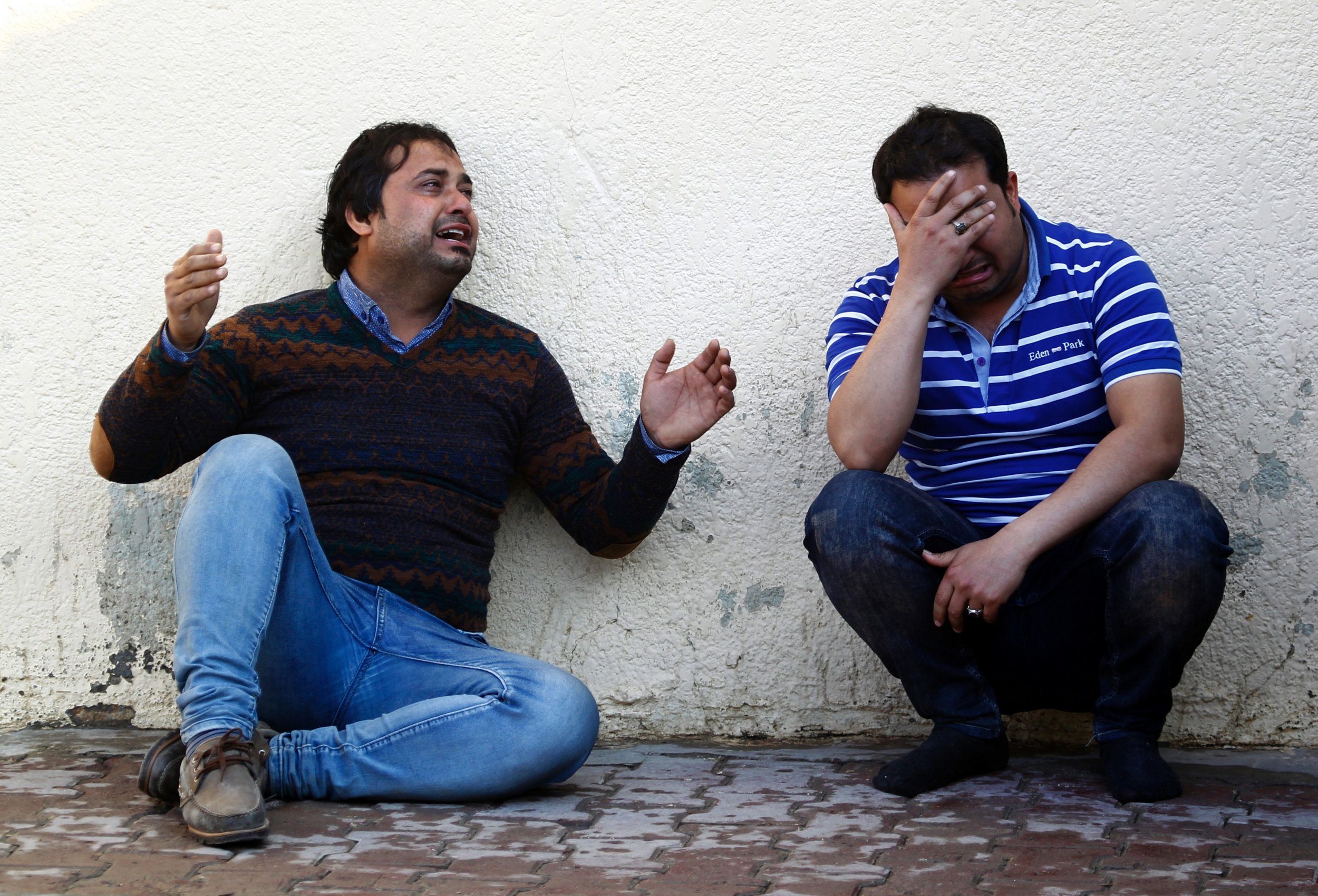
The Islamic State militant group (ISIS) claimed responsibility for a series of bombings in and around Baghdad on Sunday, killing dozens of people as the country's coalition government continues to struggle to contain the threat of the group's deadly attacks in the Iraqi capital.
In the deadliest attack to strike the city this year, an ISIS suicide bomber detonated in the crowded Mredi market in the Shiite district of Sadr City, before another suicide bomber targeted the crowd that had gathered following the blast, leaving 73 people dead and wounding more than 100.
In response to the blasts, Iraqi Prime Minister Haider Al-Abadi said that the attacks "will increase the determination" of the military battling ISIS. Yet, the group continues to launch deadly assaults in the heart of Iraq, targeting innocent civilians despite Baghdad's counterinsurgency efforts.
Analysts predict that such attacks will likely increase in frequency as ISIS continues to lose ground to Iraqi coalition forces , backed by Kurdish Peshmerga and U.S.-led coalition air strikes, in the territory it holds in other parts of the country.
"Attacks like this will continue and they are very difficult to stop," Hayder al-Khoei, associate fellow in the Middle East and North Africa Programme at Chatham House, tells Newsweek from Baghdad. "The Iraqi government isn't able [to stop the attacks]. But then again, the Iraqi government was never able to assert control over all of Baghdad. In fact, 150,000 U.S. troops in Iraq could not secure Baghdad."
While coordinated car bomb attacks have been rare since the fall of 2014, owed in part to the presence of mobile vehicle scanners at the main entrances into Baghdad, the attacks have reverted back to "small-scale, individual suicide bombs, and IEDs placed in vehicles in public areas," al-Khoei says. "The type of threat and the scope of threat is no longer the same."
But why is ISIS able to continue to strike so close to the center of Baghdad when the belts surrounding the city, traditionally Sunni militant hotspots, have been largely secured by Iraqi forces?
"I think it's a cocktail of corruption, low-levels of investment in security and continuing political incompetence that has led to these continued bombings, unfortunately," says Jordan Perry, principal MENA analyst at global risk analytics company Verisk Maplecroft, adding that crowded marketplaces can never truly be secured as they cannot be permanently on lockdown.
The Iraqi government is experiencing a sustained financial pressure, eating up vital cash reserves, because of declining oil prices, he adds, resulting in less expenditure on security measures. While this is significant, the most pressing issue that contributes to these attacks and will continue to plague Iraq after ISIS is militarily defeated is endemic corruption within the Iraqi security forces.
"In terms of transparency, I'm sure [the Iraqi security forces] have agents on the inside working with ISIS, through petty corruption, payments, getting officers to look the other way," Perry adds. ISIS double agents within the Iraqi forces helped the radical Islamist group to capture the western city of Ramadi in May 2015. "All of these things make the security barrier around Baghdad quite easy to traverse," Perry says.
Discipline and professionalism also remain a concern within the Iraqi security elite. Sunni forces in Mosul, the country's second-largest city, and Ramadi, the provincial capital of Anbar, deserted their posts in separate ISIS advances in June 2014 and May 2015 respectively, although there were reports of sectarian disaffection, poor salaries and poor equipment.
Due to this lack of leadership and responsibility from the people who are tasked with ensuring the country's security, it is the average Iraqi citizen who is going to continue to pay the price for corruption. Al-Khoei says it "starts from the very bottom and rises to the very top" of not only the Iraqi security services but also the Iraqi government.
"ISIS is still able to infiltrate the security services, it is still able to infiltrate Iraq's interior and defense ministries. It has just become so casual, bribery, it's no longer even a taboo," he says, referencing the case of one of the country's top anti-corruption chiefs Mishan al-Jabouri, who admitted this month that he had himself accepted a bribe of $5 million.
Abadi's allies have even criticized the government after the bombings, with influential Shia cleric Moqtada al-Sadr calling on the Iraqi leadership "to be alert to the threat posed to Baghdad, rather than being busy collecting money," in reference to alleged corruption.
"Corruption is linked to terrorism, if your security establishment is corrupt, it's easy for people to pay off or bribe officers," al-Khoei concludes. "That's how bad it is. The people combatting corruption are corrupt."
Uncommon Knowledge
Newsweek is committed to challenging conventional wisdom and finding connections in the search for common ground.
Newsweek is committed to challenging conventional wisdom and finding connections in the search for common ground.
About the writer
Jack is International Security and Terrorism Correspondent for Newsweek.
Email: j.moore@newsweek.com
Encrypted email: jfxm@protonmail.com
Available on Whatsapp, Signal, Wickr, Telegram, Viber.
Twitter: @JFXM
Instagram: Read more
To read how Newsweek uses AI as a newsroom tool, Click here.








